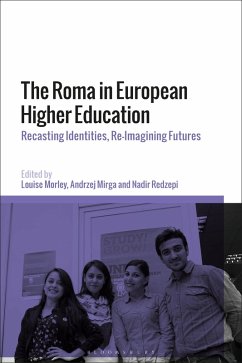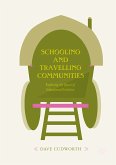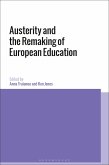Today, between 10 and 12 million Roma live in Europe, comprising the continent's largest ethnic minority. However, only 1% participate in higher education. Although the Roma are widely dispersed across Europe, and beyond, they face similar social, political, and economic challenges throughout the continent. A major site of struggle has been access, attendance and achievement in the education sector for Gypsies, Roma and Travellers (GRT). This groundbreaking text explores the Roma in higher education, a topic of great importance since higher education is considered to be a significant pathway out of poverty and to social mobility.
Why are participation rates so low? What are the barriers and what are the enablers? This edited collection brings together authors from diverse national and organisational locations including academics, activists and policymakers from Canada, Chile, Finland, Greece, Hungary, Macedonia, Poland, Romania, Serbia, the UK, and the USA. They share and critically analyse contemporary knowledge on research, policies, practices and interventions to promote Roma participation in higher education in a range of European locations. They cover key topics including the representation of Roma communities as living on the margins, but also racism, anti-Gypsyism, Romaphobia, hate crimes and discriminatory practices. The book offers insights into how to fight discrimination and re-distribute higher educational opportunities without objectifying the Roma or representing these rich and diverse communities merely as powerless victims.
Why are participation rates so low? What are the barriers and what are the enablers? This edited collection brings together authors from diverse national and organisational locations including academics, activists and policymakers from Canada, Chile, Finland, Greece, Hungary, Macedonia, Poland, Romania, Serbia, the UK, and the USA. They share and critically analyse contemporary knowledge on research, policies, practices and interventions to promote Roma participation in higher education in a range of European locations. They cover key topics including the representation of Roma communities as living on the margins, but also racism, anti-Gypsyism, Romaphobia, hate crimes and discriminatory practices. The book offers insights into how to fight discrimination and re-distribute higher educational opportunities without objectifying the Roma or representing these rich and diverse communities merely as powerless victims.









